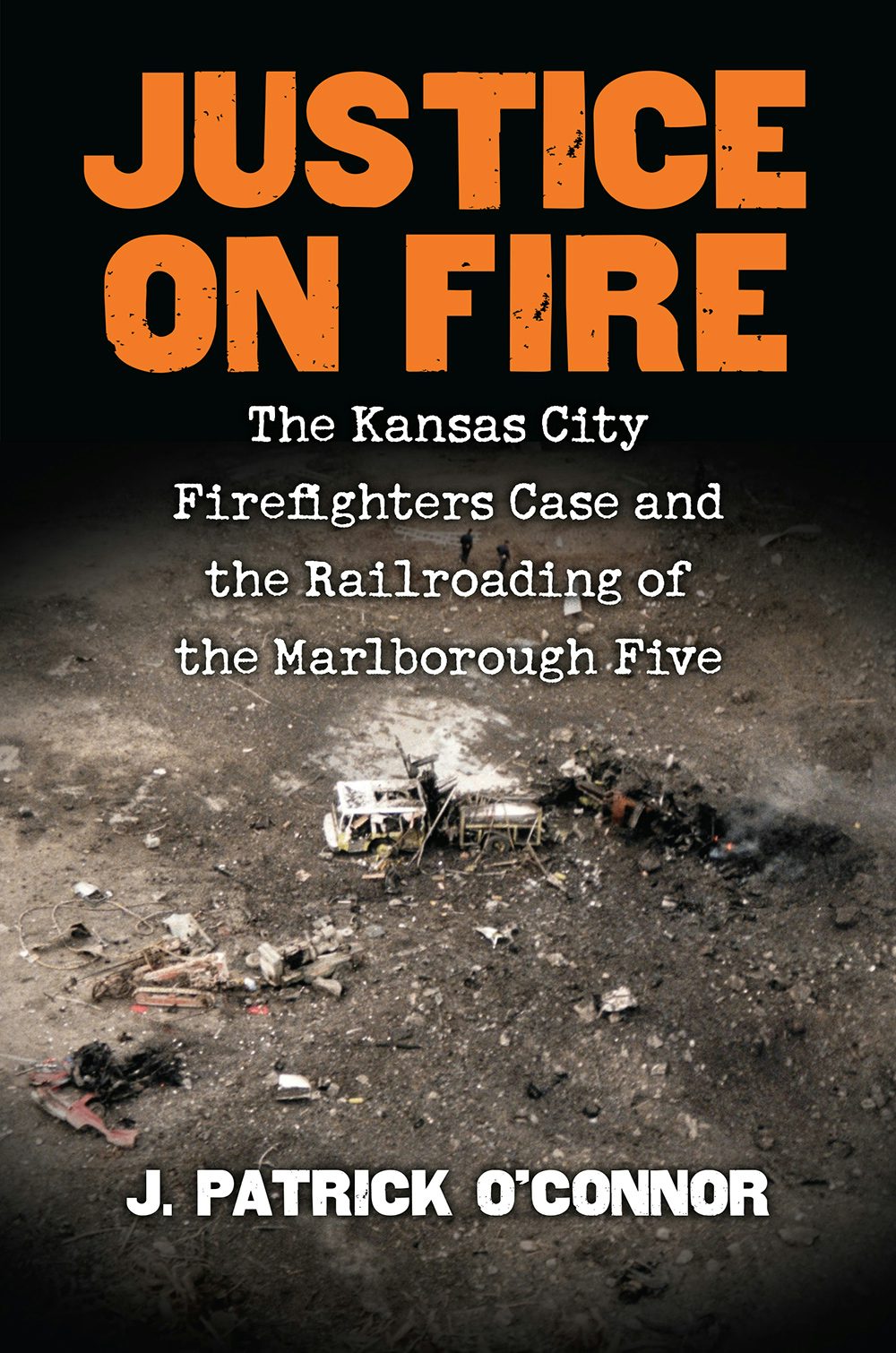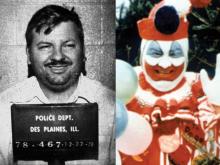
Kansas City, Missouri
In his book The Battle Behind the Badge, former police Cap. Robert Heinen portrays himself as a hero of mythic proportions in rooting out corruption in the Kansas City Police Department. He may have set out to get the bad guys, but in the process he became one himself.
by J.J. Maloney
Robert B. Heinen was a legendary and controversial Kansas City cop, almost from the time he joined the department in 1946 to his retirement in 1974. He played no small part in the downfall of Police Chief Joseph McNamara in 1976, now a respected national authority on crime and criminal justice.
In his book, The Battle Behind the Badge, Heinen portrays himself as a hero of mythic proportions. He bills the book, published in 1997 by Leathers Publishing, a local vanity press, as "The story of a police captain's struggle against corruption and political interference in the Kansas City department."
The book also depicts Heinen, a retired captain, to be a brutal, sadistic cop, who – with his badge as a shield – committed many, many felonies. The book further recounts that the upper echelons in the police department also took part in numerous crimes.
Heinan's book reveals that the Mafia controlled the Kansas City Police Department for many years. In reading the book it is often hard to tell the difference between the police and the criminals.
Heinen describes a police force riddled with crooks and grafters: an army of police officers who not only took payoffs from the Mafia, but who routinely committed armed robberies and burglaries, with supposedly honest cops closing their eyes and shutting their mouths to the crimes they witnessed. To wit:
"We approached Benton Boulevard and spotted the acting sergeant's cruiser parked with two other cruisers in the shadows by a side door of the tavern. As we drove up, we saw a policeman carrying a case of liquor out of the place. We left the car and walked into the bar while the thieves continued to work as though we weren't there. They had broken open the vending machines to get at the coins, and were unloading cases of liquor from a storeroom.
"They didn't worry about being ratted on because that would be against the 'code.' The thieves called Morris so he could get his share of the loot. We watched in silence. . .We had learned from experience to overlook any infractions perpetrated by a fellow officer. This 'code' wasn't to be violated. An officer who infringed upon the code met a wrath designed to banish him from the department. When that came into conflict with one's personal morality, it could be extremely frustrating. Reporting any rogue officers to the inspection bureau backfired for the whistle-blower. He would be set up for phony violations, and rather than suffer the ensuing embarrassment, he usually resigned."
Anyone who wants to understand why blacks have a deep distrust of the police need only read this book. Heinen to this day takes pride in the beatings he gave to countless black people:
"...Stretched turned belligerently to me again and said, 'What're you taking us to jail for? We got a right to know?'"
"We're not taking you to jail," I said. "That's too easy. We're going to beat the hell out of you." Without another word, I slugged him in the gut, and caught him in the jaw on the way down. He folded up on the sidewalk.
"My first punch was a signal for Chuck to begin educating the other gang member. He finished by knocking him over the hood of a parked car and into the street, where a passing motorist barely missed hitting him."
Admittedly Heinen is talking of an earlier era, when police beatings were routine (although always officially denied). Heinen, however, effectively describes the institutional mindset common among police officers: to protect each other.
And lest anyone think these problems are in the past, Heinen says in the book: "Most large cities have had a problem with police corruption at some time; Kansas City just seems to have it at regular intervals, like the life cycle of a cicada."
I remember Heinen from my days as a reporter for The Kansas City Star. When I was investigating River Quay and the Mafia, I had occasion to read all of the Star's clippings on Robert Heinen. The Mafia hated Heinen. He would invade their gambling dens and arrest them in droves. At one point he carried a sawed-off pool cue on his raids, and used K-9 dogs.
He was Dirty Harry long before the movie was made. He was involved in shootings and he arrested thousands of people. His motivation, as he sees it, is simple: "During the noon hour, students from Lincoln High School went down to 12th and Highland and shot heroin. I wanted to catch the bastards who were peddling to these kids, but I didn't know any pushers. In fact, I didn't know much about narcotics. I also felt that I had a stake in the community. My family lived there, and I was in a position to do something about it. If I wouldn't do anything, why should I expect anyone else to stick out their neck?"
There is no doubt in my mind that Heinen believes he was correct in all he did. It is sometimes called being in denial.
Throughout the book Heinen rages at the corruption in the police department, and portrays himself as a lonely figure trying to end that corruption. He needs only to read his own book to discover how wrong he is – how deep in denial he is.
In 1959 Heinen was demoted and put back in uniform after a dispute with his superiors. He decided to blackmail them into putting him back in plainclothes. According to Heinen he burglarized the Produce Club on Third Street, which he describes as a Mafia company frequented by Carl "Cork" Civella, a much-feared Kansas City gangster. He planted an electronic bug on the premises, with a voice-activated recorder nearby. Heinen says he obtained the following on tape:
"The plainclothes commander and Cork Civella finally came on the tape. No mistaking Cork's blustery voice and, of course, I recognized the voice of the lieutenant. Apparently they had started talking before they entered the balcony office, because Cork's voice came on in mid-sentence.
"'...told you that before!"
"'It's not my idea. That's what the colonel wants."
"'Tell him to take some of Davidson's cut! That's his fucking problem! We're not coming up with any more fucking money than you're already getting!'"
Heinen says he notified his superiors that he had the tapes, and demanded that he be put back in plainclothes by Nov. 1 or he would resign and take his superiors down with him. They returned him to plainclothes by Nov. 1.
When a Jackson County grand jury opened an investigation into corruption in the Kansas City Police Department it tried to get the tape recordings Heinen had made, and he refused to turn them over. As he says: "I wasn't surprised to receive top billing, and my run-in with prosecutor Donald Hudson was a head-on collision. Word circulated that I had taped conversations with some of my commanding officers, and he wanted to hear them. These tapes were my personal property to be used as a matter of protection and a matter of survival. At the moment, I was under no threat of either."
In other words, as long as Heinen got what he wanted – detective status and promotions – his corrupt superiors could get away with anything they wanted.
Heinan's hypocrisy is best revealed in the fact that he stole dope from the police department to give to his stool-pigeons – while at the same time denouncing those who feed the addictions of addicts.
"After taking his address, I gave Benny his heroin and told him he could go but that I might need him in the future. As it turned out, he became a good informer.
"The next evening, before the meeting with Heisig, I went to 14th and Lydia to meet Fred Jackson, my addict informant who had given me the information on Gamble. After he had gotten into the car, I handed him a small bag with 50 capsules of heroin in it. "You know I'm not supposed to do this. It's a violation of the law. I took it out of Gamble's stash."
"I thought that selling illegal drugs should rank in severity with the crime of murder. It condemns an addict to a slow death after first destroying any integrity or moral ethics he may have."
Those three paragraphs come from different parts of the book, which is why Heinen needs to read his own book.
In 1965 Heinen cooperated with U.S. Sen. E.V. Long (D-Mo.)who was holding hearings on wiretaps. At this time Heinen had been under investigation by the IRS for four years, and had even been given an O.C.D. number by the IRS, indicating he was the subject of an investigation involving organized crime.
Heinen, who is quick to relate anything shady about anyone he perceives as an enemy, is strangely silent about Sen. Long, who was long suspected of being under the influence of organized crime – his very reason for being the senator who fought the longest and the hardest against wire-tapping laws, because such laws are used most often against organized crime.
Long was closely connected to Morris Shenker, the St. Louis lawyer who represented Jimmy Hoffa, and who met Hoffa through Frank "Buster" Wortman, the gang boss of East St. Louis, Ill.
Heinen told the committee that the Kansas City Police Department often used illegal wire-tapping, but felt no fear of getting in trouble because there were federal agents involved.
Lt. James Hitchcock, now commander of the intelligence unit, was extremely nervous when he was called to testify. During the examination he admitted that his unit had been active in installing wiretaps. His immediate superior, Maj. James Newman, chief of detectives, admitted knowledge of wiretapping activities performed by the intelligence unit. Chief [Clarence] Kelley, who was aware of the wiretapping and kept informed of the results, was not called to testify.
Late in his career, after being promoted to captain, Heinen was suspected of being a right-wing radical, and was suspected of being involved in a number of bombings in Kansas City.
Heinen describes one encounter with Chief Kelley that included this exchange:
"'I don't have any organization,' I said again."
"I have evidence that you do, and that you would kill anyone who got in your way."
According to Heinen he took a series of polygraph tests on whether he had dynamite in his basement (he refused to let the police search the basement), and that he flunked one question relating to dynamite in the basement. According to Heinen the bomber was eventually caught, and he was cleared.
In 1973 President Richard Nixon appointed Clarence Kelley as head of the FBI. Kelley's eventual replacement as police chief was Joseph D. McNamara, a 38-year- old New York police officer.
Following the shooting of a 15-year-old boy, fleeing from a burglary, McNamara instituted a new gun policy, forbidding Kansas City police officers to shoot a fleeing person unless they were first fired upon.
Then McNamara committed the greatest sin of all: He attended the slain youth's funeral. In doing so, McNamara was perceived as breaking ranks with his own officers.
Heinen eventually filed a court challenge to McNamara's fitness to be chief of police, arguing that McNamara did not have the requisite five years of command experience, and indications are that Heinen was correct.
When McNamara struck back at Heinen, Heinen retired to save his pension – then continued to wage his battle against McNamara.
Heinen enjoyed the support of many, many, police officers. Signs saying "Viva Heinen" were painted on buildings and highway overpasses.
In 1976 McNamara took a job as chief of the San Jose (Calif.) Police Department.
That ended the saga of Robert Heinen – until now, with publication of this book.
The book is strangely fascinating. It represents a glimpse into the workings of a police department that is usually not available. The miasma of Machiavellian intrigue, as police officers jockey for promotions and assignment – or even credit for who shot a burglar – is something more citizens need to understand.
Heinen pats himself on the back so frequently and vigorously that the book becomes tedious. He blames every reprimand and demotion on the arcane workings of the Mafia, the politicians, jealous police officers or just plain stupidity. Sometimes it was the Mafia, I'm sure, and sometimes it was the politicians. A lot of the time it was Bob Heinen.
It never occurred to him that he was the loosest of loose cannons, which is never tolerated in a military-style organization.
As a young man he set out to get the bad guys, and became one himself in the process.
Describing one gang of police burglars who were caught, Heinen writes: They denied stealing anything, but couldn't deny that they had gone to the store, since they had been dispatched there. Given the choice of resigning or being charged in state court, they chose to resign. They knew they wouldn't be able to lie their way out of the manager's evidence. Their stealing days, under cover of a police uniform, were over. Unfortunately, that was the only punishment they received.
Heinen says early in his career he was advised to go talk to Charlie Binaggio, a top Mafiosi, about getting a promotion. Heinen says he declined. Following Binaggio's murder in 1950, Heinen says: Detectives found a black roster in Binaggio's desk containing the names of so many policemen of various ranks that the department decided not to do anything about it. There would have been too many officers to replace.
The offender knew when he was out of line, and respected an officer who had to boff him in lieu of arresting him, to get him to shape up. There is quite a difference between that and brutality.
While standing in a dark alley one night I spotted a well-known addict, Fred Jackson, on the street. By his actions, I sensed that he was dirty. I stepped out of the alley so fast he didn't have time to dump the stuff. Without a word of greeting, I cold-cocked him. Splat! The blow to his jaw made a sound like that of a raw steak slapped down on a butcher's block.
We never had much trouble reasoning with our suspects, especially on a freezing night. Late one night we located a burglar who had hauled merchandise out of several businesses. We picked him up and drove to a quiet alley where we could have a friendly chat. [Ed: Heinen wrote that he then made the man disrobe and stand in the snow and freezing wind, until he confessed.]
We had more leeway than officers have today. The news media has made such an issue of perceived injustice, that instead of using common sense, the slightest contact is viewed as brutality.








